Adam Roberge x Factor
Influencing By Winning
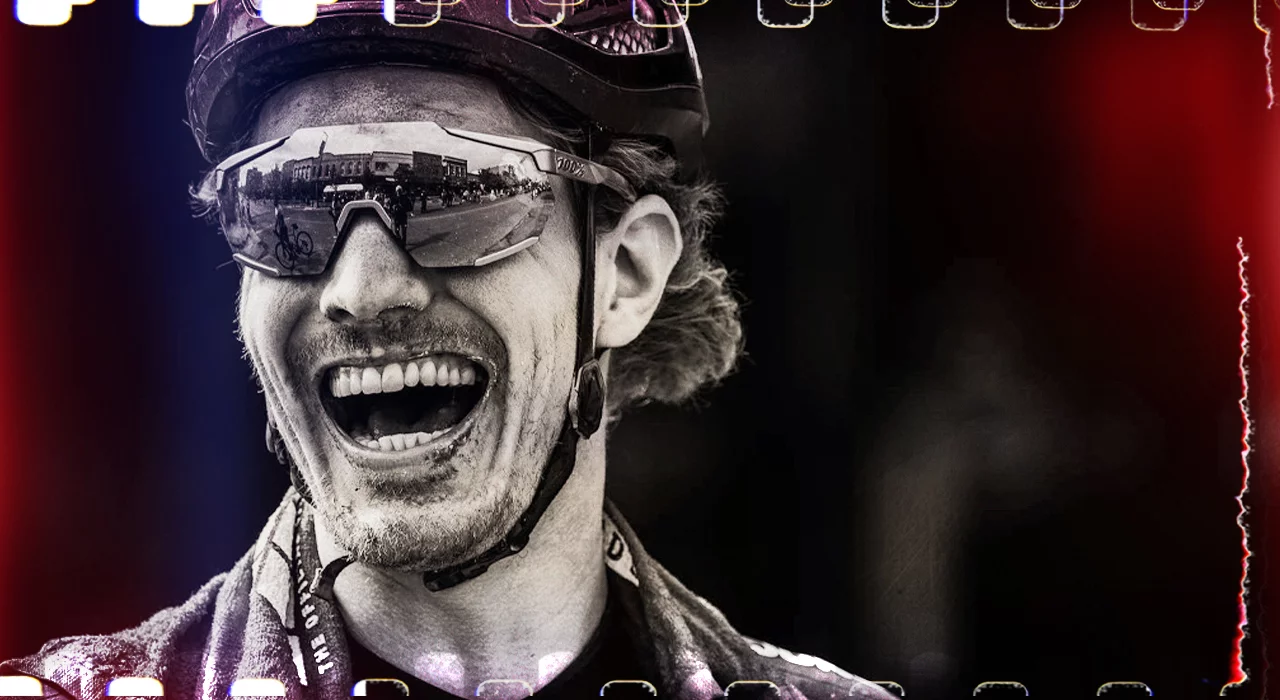
Like many quality North American road riders, the pandemic put Canadian Adam Roberge in a unique position. When road racing and trade team opportunities began to dry up, Roberge had to pivot off his road racing track. “Pre-COVID I was still under contract to a road team, but then, because nothing much happened in North America on the road during COVID, I had the chance to race gravel,” Roberge explained.
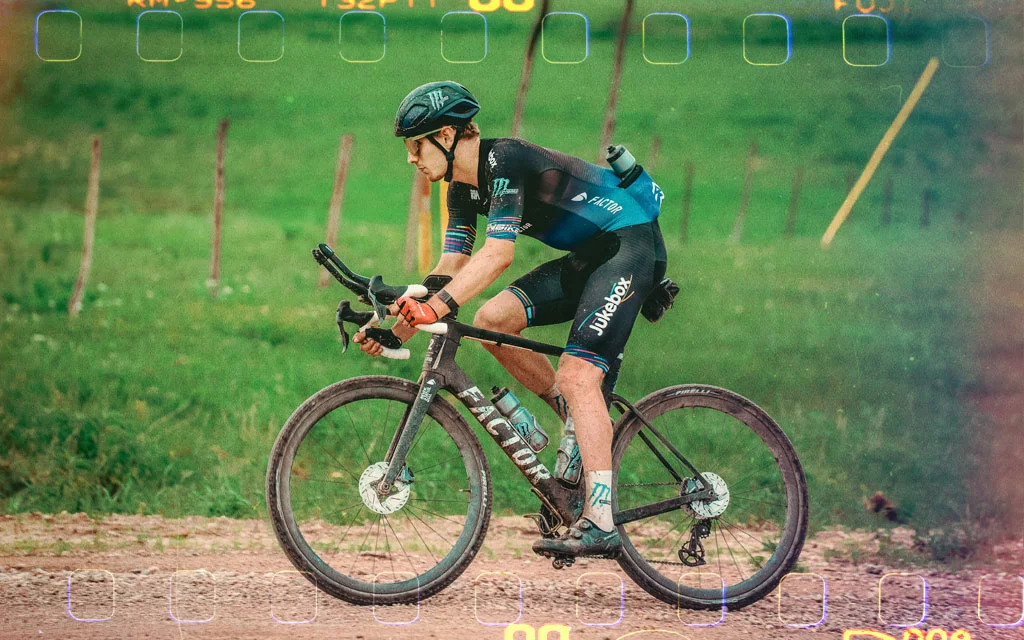
Photo @velophoto.tx
Finding success from the get-go, Roberge quickly appeared on Factor’s radar. “When Factor and I got in contact, I was pretty excited,” he said. “I have always been interested in Factor; it is a brand I was excited to try. I think that since Factor can do everything in-house, it makes the bike simple and well designed. I’m picky with details, and I really like how they have integrated with the barstem, so that once I have it set up right, I know I don’t have to worry about it.”
Life as a privateer
With the rise of mountain biking and in particular gravel racing in North America over the past several years, individual athletes now have the chance to pull together sponsors and a racing program without having to consider the contractual ties of a professional road team. It has put inclusivity on a much higher plain than has been seen in the past. But with greater freedoms also come bigger responsibilities.
“In terms of logistics and working load, I think you have more to do as a privateer because I am dealing with everything with the sponsors. But that’s something that I enjoy as well, thinking about content and thinking about how I can promote my sponsors as best as I can,” Roberge explained. “Because when you are on a road team, you care about promoting the sponsors, but you don’t feel like you are the only one controlling whether the brand is happy with you, so you have less pressure in a way, but you also have less connection to the brand. It’s more work as a privateer, but also more fulfilling.”
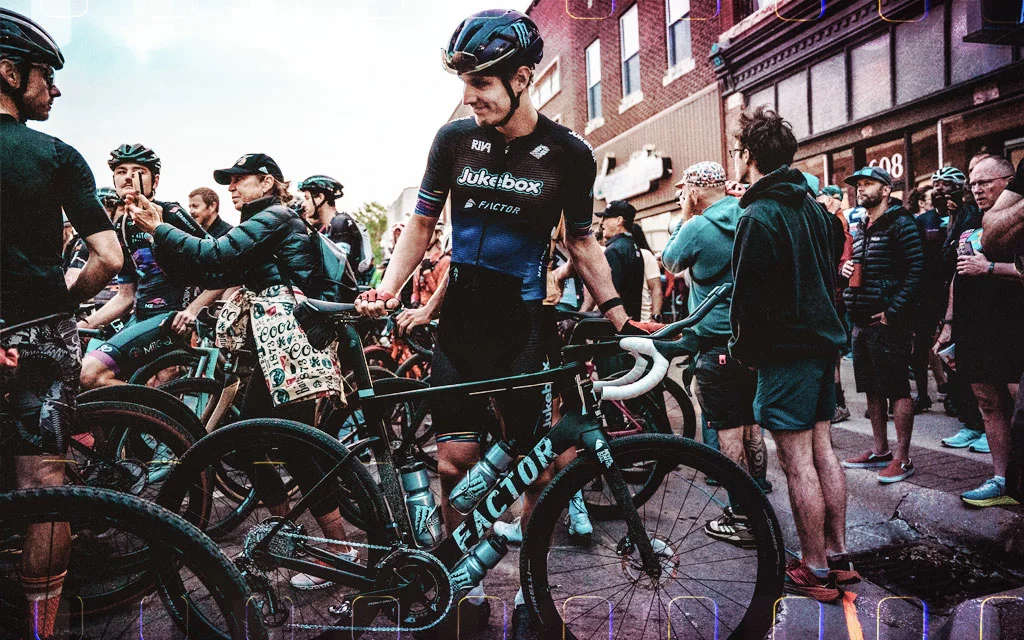
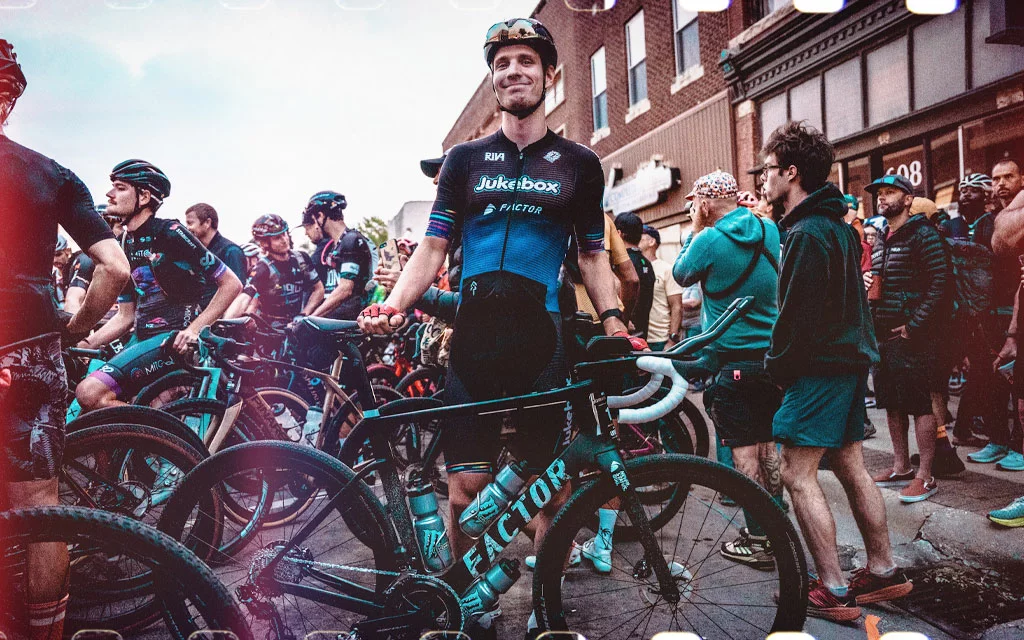
Photo @velophoto.tx
In theory, a privateer has much more control over the choice of materials than one would have on a trade team. “I wouldn’t go with a brand I didn’t like. At the end of the day, my job is to perform to the best of my abilities, and if my equipment doesn’t allow me to do that, then I won’t use it. The first criteria for accepting a deal is whether the equipment will help me perform my best,” Roberge confirmed. “That changed for me since riding on the road you can’t really decide what you are riding and sometimes you can end up having to use equipment that you really don’t like. And you don’t really have a say in it. But what’s cool about being by myself, I can choose the equipment that I believe in.”
Influencing For The Right Reasons
With the decline of professional road teams in North America, the onus of promoting has fallen in large part on the riders themselves, resulting in the privateer setup so many athletes have adopted. The diffuse postings across endless social media platforms offer opportunities as well as pitfalls for all concerned.
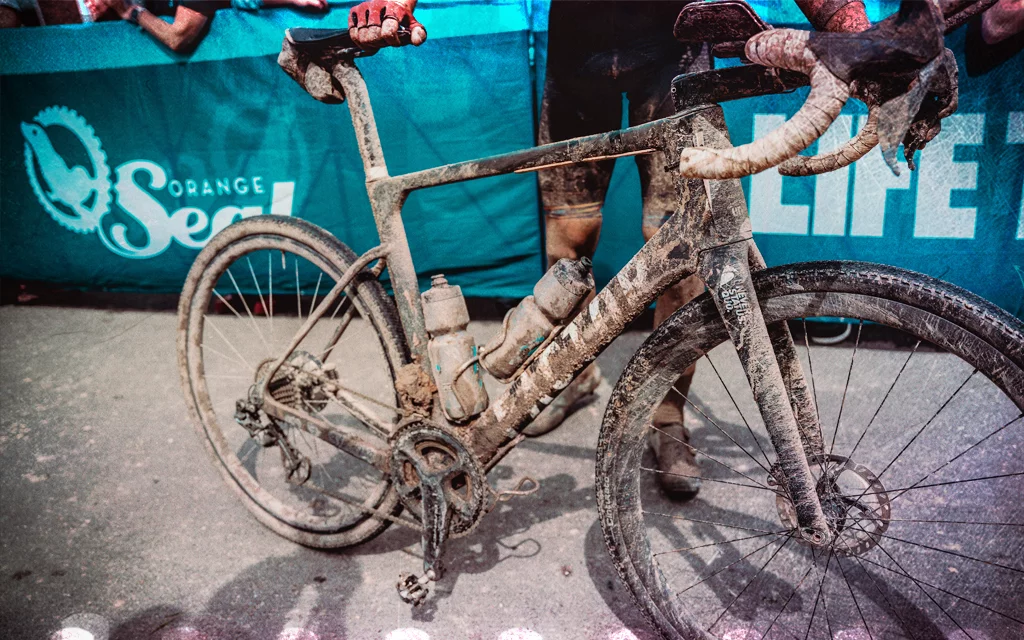
Inevitably it all comes back to using the right equipment that can support and even enhance Roberge’s own strengths to ensure the best performance possible. “Being an influencer is good, but I think that what sells, for me at least, I always remind myself that performance is the top priority. Engagement is important, but the right engagement is more valuable. If I am winning, I am selling more stuff in my opinion,” he continued. “It’s a privilege to be able to use equipment that is easy for me to promote because I am in love with it.”
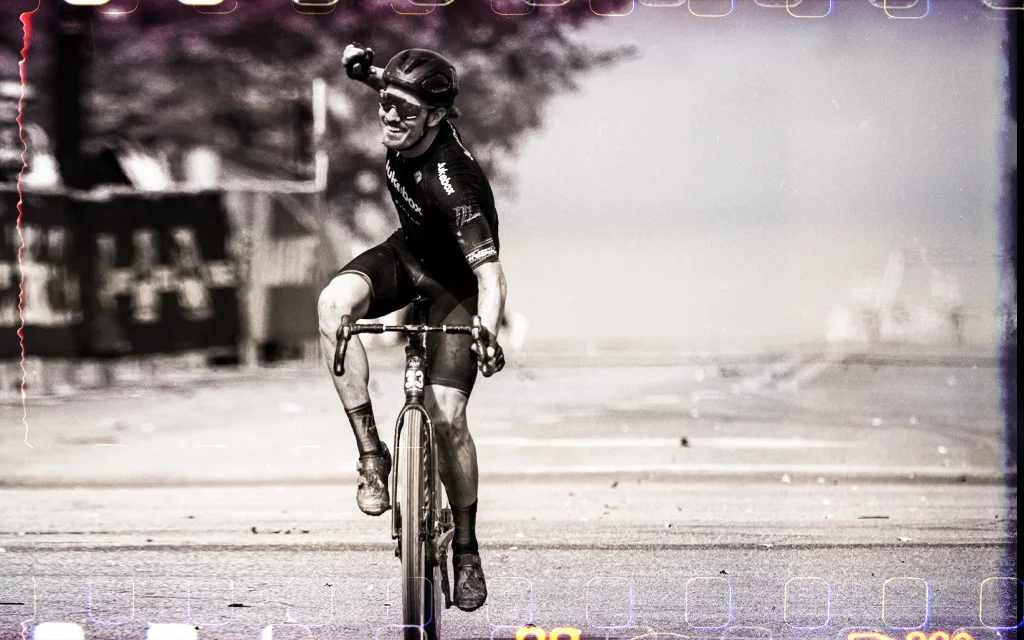
photo @dhughes101
Winning Always The Priority
While his road career may have been interrupted by the pandemic, Roberge has definitely found the best way to make lemonade out of lemons. “I’m not sure I had one moment where I decided to become a pro cyclist. It’s been a slow build, getting more and more good results, and seeing the next opportunity, and I started realizing that maybe if I put in a lot of effort, there is the possibility to have a career racing,” Roberge explained. “Before, I was still in school, so it was still one foot in one foot out. But it’s been two years that I don’t say pro cyclist in a weird way when people ask me what I do for a living. Before it was like I’m a cyclist, don’t know if I’m pro…but now I can say it.”
And now winning the biggest races on the North American calendar are his biggest goals. His previous successes such as winning the Belgian Waffle Ride Triple Crown and the Garmin Gravel Worlds prove that no goal will be too ambitious; Roberge is capable of anything. “This year, I would say that winning the Lifetime Grand Prix will be my biggest goal,” Roberge confirmed. “Lifetime just added a new gravel race into the series so I think it kinda evens out the competition way more for the road guys because I think the way it was built last year with three mountain bike races and three gravel, it was weighted more in favor of the mountain bike rider.”
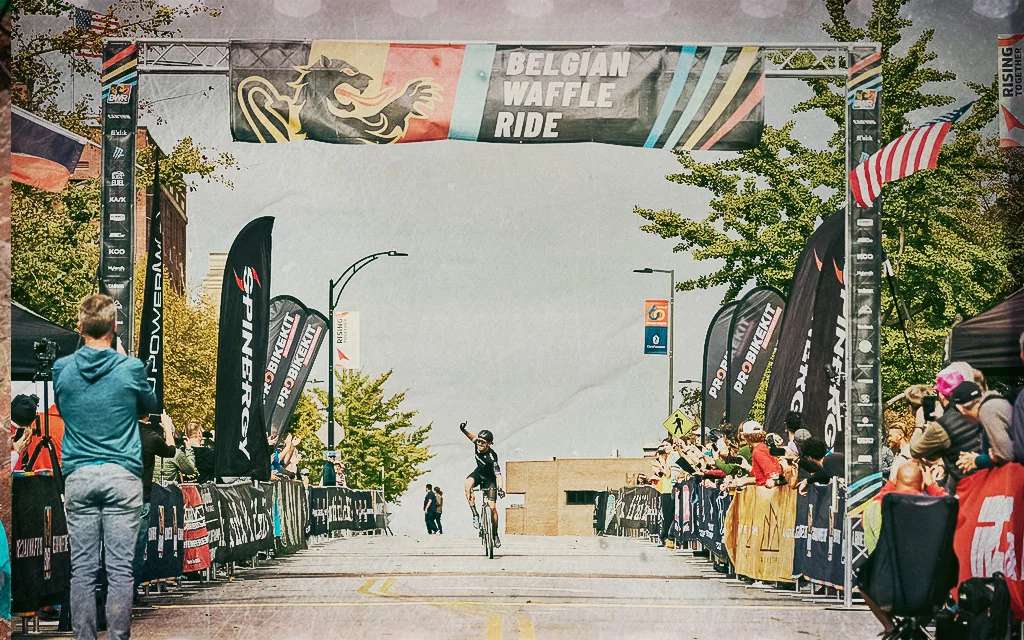
Photo @unroadunltd
Doing It Differently
Coming from a road background, Roberge has succeeded quickly in gravel and mountain bike racing because he has big watts to power him through the occasional sketchy handling moment. His road pedigree also means that he likes a big volume of races as opposed to targeting just a handful of events. “We race so much more on the road that I actually like to race a lot even on the gravel too,” Roberge said. “I know mountain bikers like to look at like six races in the year and that’s all they’ll focus on.”
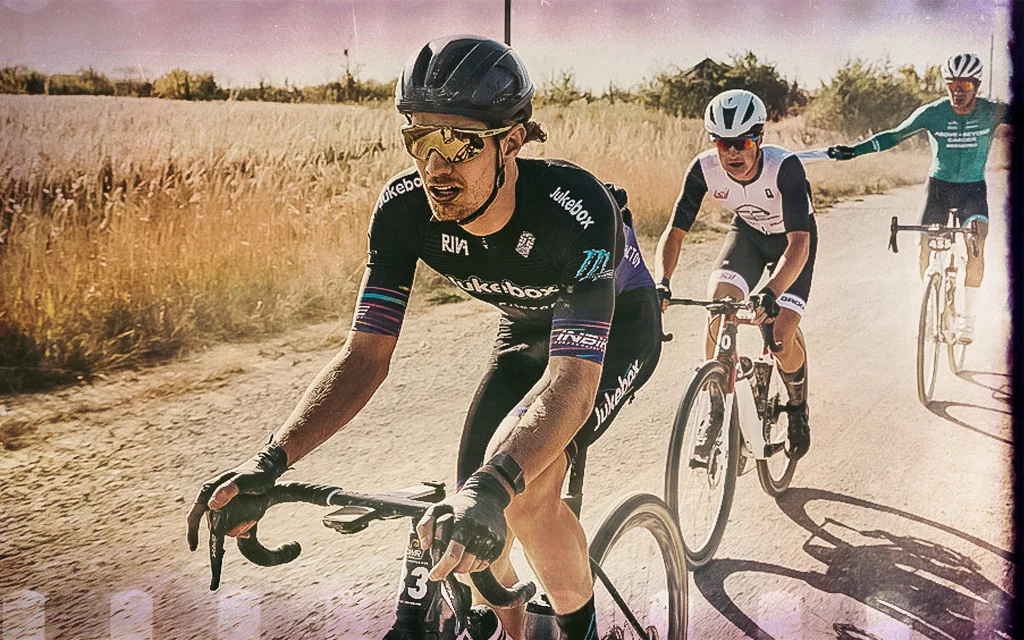
“I think the main reason mountain bikers did so well in the 2022 GP is because half the races were MTB races, but also a lot of those guys focus totally on the GP. So for instance, last year I raced 27 professional gravel races and most of the guys probably did maybe 15 and the MTB-specific guys did even fewer,” Roberge explained. “For them, they like to take a month, then peak for a race; for me I bring a road bike way to it, and I know I am able to perform every weekend. I like to race a lot. When you are racing on the road you are racing every weekend and then you’re doing stage races, so I like to have my racing legs all year.”
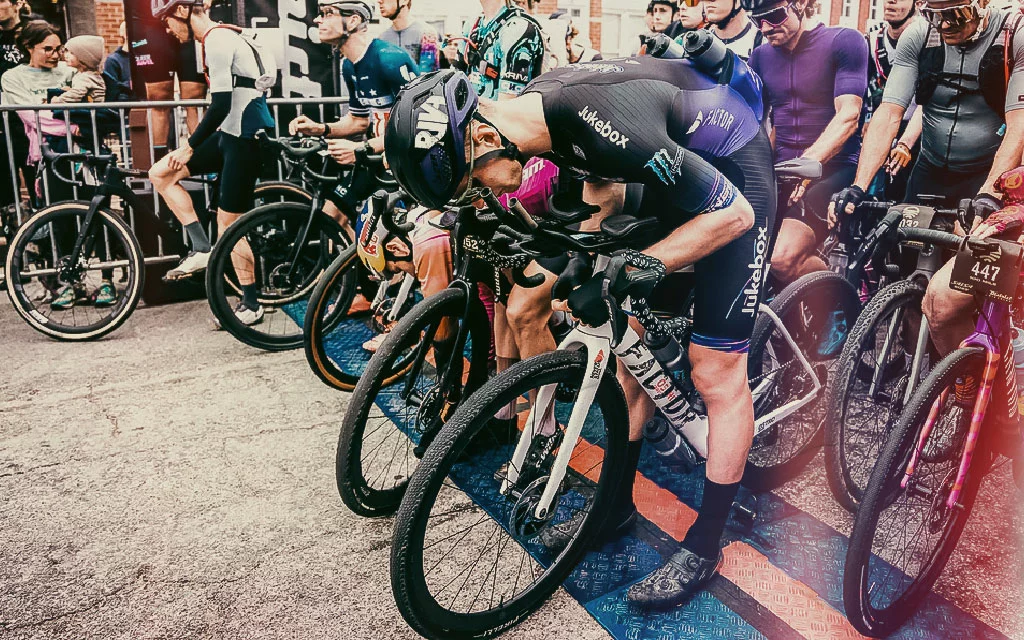
Photo @velophoto.tx
With the addition of a fourth gravel race to the Lifetime series and Roberge’s ever increasing skill level on the mountain bike, there’s no question that he is gearing up to make a huge play for the GP overall. “I will be putting more emphasis on the GP than I did last year in terms of preparation, but I still want to race a lot,” he said. “Quality and quantity. I don’t know whether that will work, but I’m going to try.”
Adam And His Ostro Gravel
With the super-high level of competition found in gravel racing in North America, getting good results becomes even harder than previous seasons. But Roberge has already found big success on his Factor OSTRO Gravel. Expectations are high. And he certainly feels he has the perfect tool to accomplish his goals. “The first time I rode the OSTRO Gravel was at Unbound. But I hadn’t had the bike for very long, so I didn't really have my position dialed,” Roberge said. “After Unbound I got the chance really to train on the OG, modify a few things to where it was the perfect fit, and Gravel Worlds is kinda a perfect course for an aero bike.”
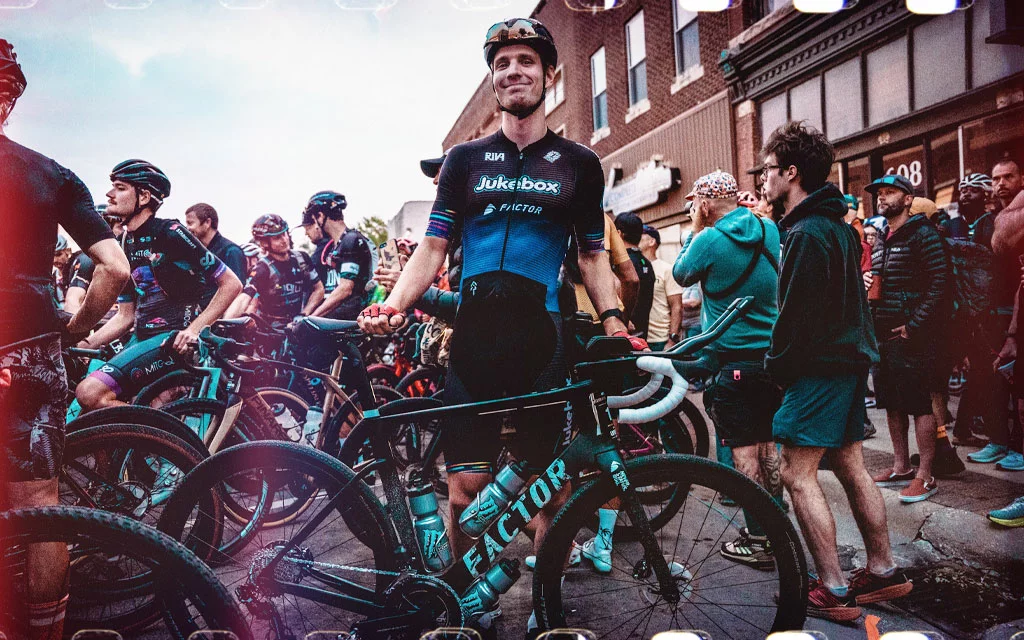
Photo @velophoto.tx
The result was that Roberge won Garmin Gravel Worlds in 2022 in a time of 6:59:44. But over a course of 150 miles and nearly seven hours, Roberge won by just 14 seconds. It’s a time difference that the smallest mechanical or slightly imperfect aero set-up could have soaked up. It shows the double importance of exceptional aerodynamics married to real-world durability in gravel racing.
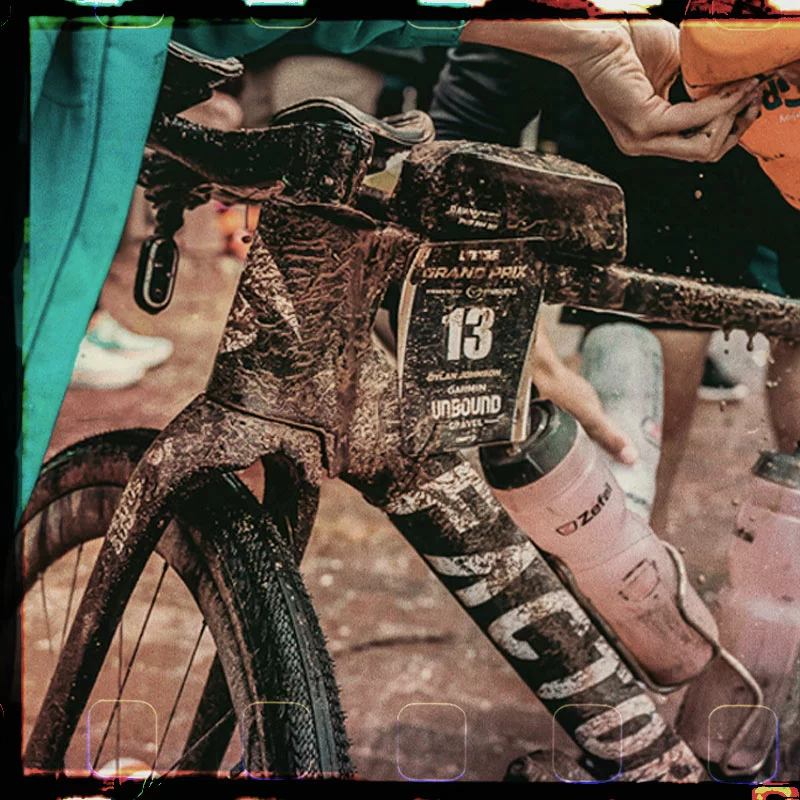
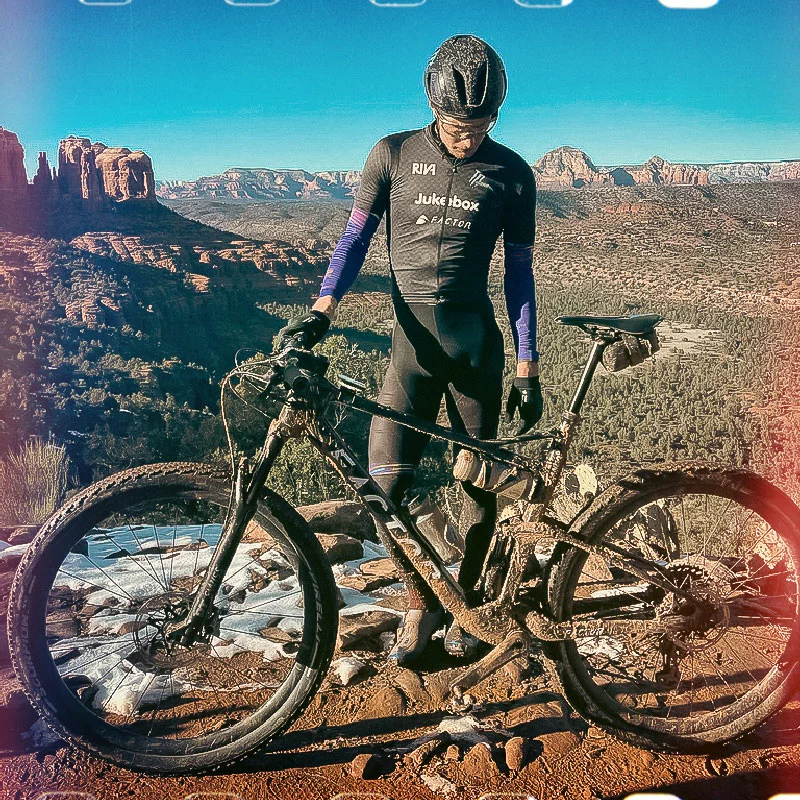
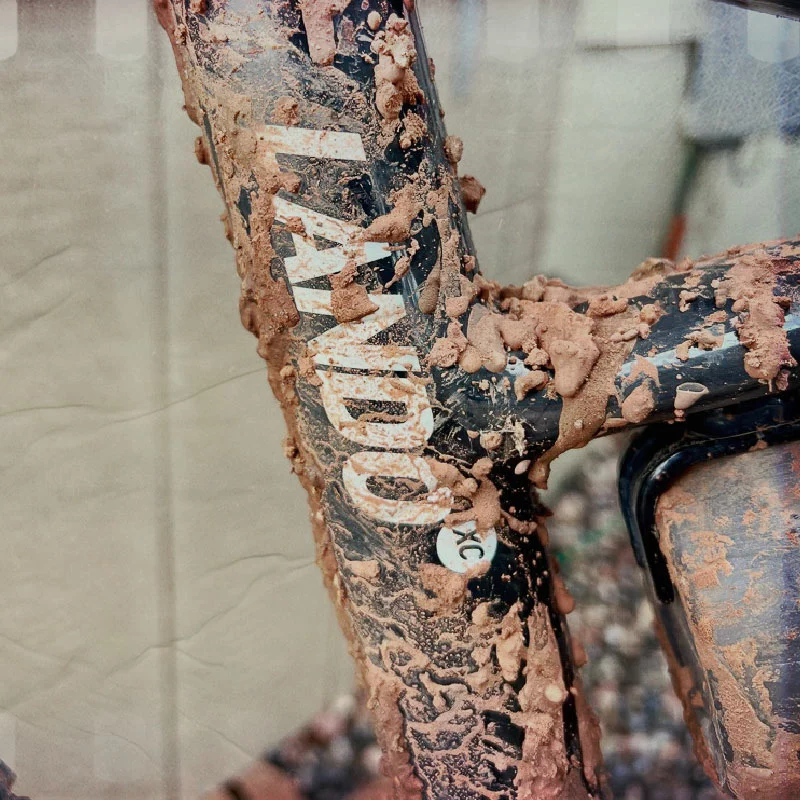
“The thing I really like about the OG is how the handlebar is shaped. You have the flare at the bottom that gives you more stability, but the shape of it makes it very easy to get in the aero position,” Roberge concluded. “So when I was solo for the last 40km at Gravel Worlds, it was really helpful to have the OSTRO Gravel and the Black Inc Integrated Aero Barstem with that shape.”
Since Adam will not only be racing on an OSTRO Gravel but also a LANDO XC, finding the right mix for his set-up is doubly important. “I’m riding the full suspension LANDO XC, which I like a lot because even if I have the watts, it’s the technical side that I have a little more trouble with,” Adam explained. “So I like to have that little extra weight compared to the hardtail in order to have the extra comfort of the full suspension.”
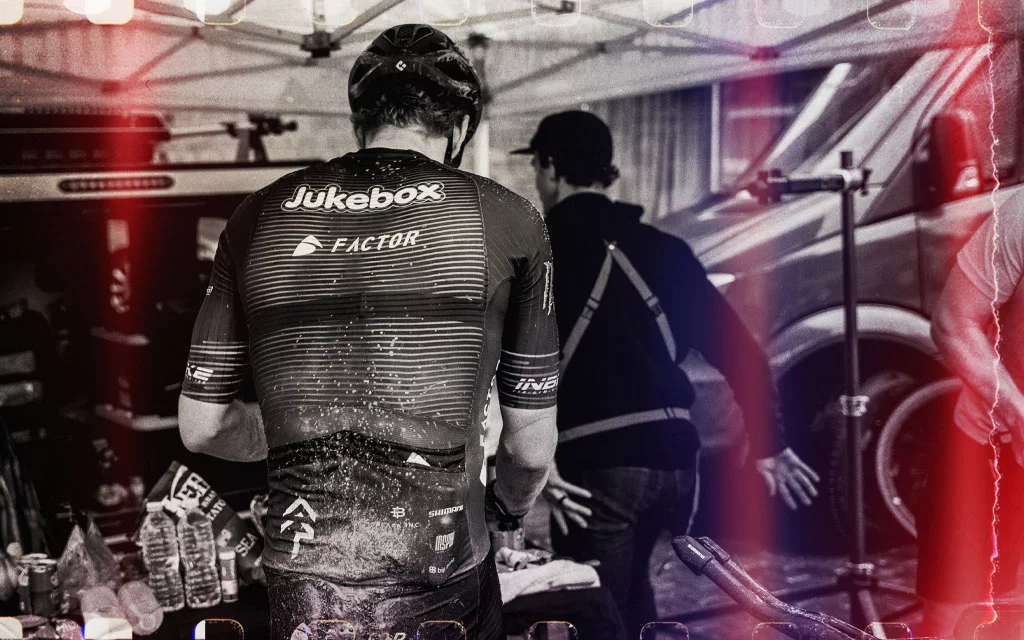
Photo @velophoto.tx

© 2026 Factor Bikes. All rights reserved / Privacy Policy |Terms
